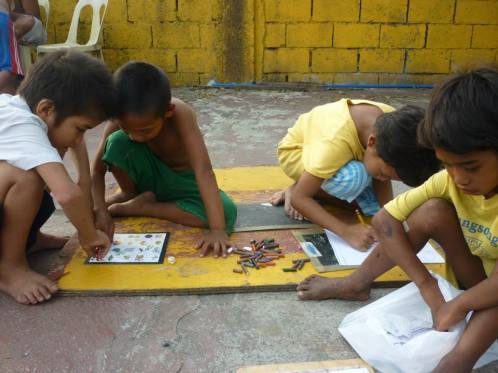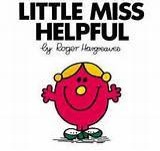"Came the high winds,
High winds rampaging, enraged.
They departed, leaving their scent of wild animals:
Tears, ruin and mourning."
High winds rampaging, enraged.
They departed, leaving their scent of wild animals:
Tears, ruin and mourning."
By Florette Morand
For some time now, people in the Philippines have been saying, "Our lands will soon lie totally beneath the water." Typhoons and earthquakes obliterate homes, leaving millions of children and their parents at the mercy of the elements. And when the waters ebb, after villages are buried beneath the mud, the media looks elsewhere, leaving struggling families behind to face new challenges in a silence born of overflowing sorrow and injustice.
As terrible as foretold, Haiyan/Yolanda’s winds have shrouded the earth.
Barricades, hiding—paltry efforts.
The high winds departed, having destroyed in a few hours
The love of a lifetime, _The fruit of hard labor,
Hope for a better tomorrow
Barricades, hiding—paltry efforts.
The high winds departed, having destroyed in a few hours
The love of a lifetime, _The fruit of hard labor,
Hope for a better tomorrow
The high winds departed,
Leaving only bleakness—
But the heart of humanity
Continues to beat.
Leaving only bleakness—
But the heart of humanity
Continues to beat.
Robing themselves with courage,
Amid the debris still swirling,
Children, youths, women and men
Go in search of what they lack.
Amid the debris still swirling,
Children, youths, women and men
Go in search of what they lack.
For many, the passage of time ends hope of reuniting,
Or being able to honor the remains of a loved one.
The passage of time for survivors is nevertheless a fine thread
That says tomorrow is coming.
Or being able to honor the remains of a loved one.
The passage of time for survivors is nevertheless a fine thread
That says tomorrow is coming.
Everywhere up and down the Philippines, and beyond its borders,
Children, youths, women and men,
Some of whom know the violence of life constantly buffeted by poverty,
Have changed their priorities to ask: how can I help?
Children, youths, women and men,
Some of whom know the violence of life constantly buffeted by poverty,
Have changed their priorities to ask: how can I help?
In the chaos, how can we find the way forward that brings back what matters most and preserves the dignity of people who have lost everything, who are distraught?
Without knowing how to join them in their suffering and courage, we are thinking of a recent dialogue between people who live in extreme poverty in Manila and Filipino government officials. It was on 23 October, concluding events for the World Day for Overcoming Poverty. We were very struck on that occasion by the enormity of the challenges being tackled by the government in a country made up of islands in a time of rising sea levels. For the government’s flood management plan in Metro Manila, it has identified 104,000 families living less than 3 meters from a waterway. The president plans to support relocating all of these families by 2016 to places where earning a decent livelihood will be possible.
Several participants explained why they live in informal settlements considered “danger zones” along waterways, for instance in shanties hanging from the undersides of bridges directly above rivers, because this is where they have livelihoods that enable them to support their families. During the dialogue day, Undersecretary Jude H. Esguerra III, of the National Anti-Poverty Commission, spoke of the government’s humility in the face of this challenge. He referred to families who were relocated two years ago following a typhoon, saying: “Today we have realized that even two years later, their children have still not been able to return to school.” He spoke of other challenges faced in that relocation that, despite planning, the government had not anticipated, lacking sufficient knowledge of how people live when they are condemned to barely surviving. He said, “We need to formalize our promises to the poor and to strengthen their voice in the president’s cabinet. Our agencies need to be more accountable.”
Today, the challenge for the Filipino people and their government is even greater than before—but many others are expressing solidarity.
Both the grief and the bravery of the families stricken by this typhoon remind us of what we learned from families in New Orleans when it was battered by the wrath of Hurricane Katrina, and from the families in Haiti, whose hopes and dreams were shattered in the half minute of an earthquake. This resilience to disaster reminds us of what we learn wherever we are, with families who must survive day-to-day with the uncertainty, chaos and emergency of each moment: The most important thing is believing in our brother- and sisterhood so that it can guide us to seek out whoever is the worst off, the one who will be lost if we do not try. It is this person who we recognize as someone with aspirations and plans, despite destitution, someone whose experience is of value to others. We recognize this person as a partner for whatever will be undertaken because this person’s contribution is the very foundation of a future where every person’s inalienable dignity will be respected and where we will all live in harmony.
Isabelle Pypaert Perrin, Jacqueline Plaisir, Diana Skelton, Jean Toussaint
International Leadership Team.
International Leadership Team.



















